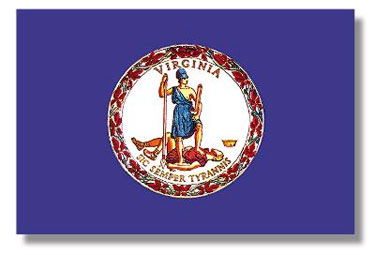Attorney Fee Awards After McAfee v. Boczar in the Fourth Circuit
Today we will take a look at attorney fee awards after McAfee v. Boczar and the important guidance this opinion provides for Courts awarding attorney’s fees. Although the McAfee opinion represents only a slight clarification of the law, in my view it is an important one for reasons that go straight to the heart of our system of laws and jurisprudence. But first, a few basics.
The Twelve Factor “Johnson Test” in the Fourth Circuit
To begin at the beginning, when a statute or contract provides that a prevailing party is entitled to recover its reasonable attorney’s fees, federal courts more or less without exception utilize the lodestar method. The lodestar method consists of determining a reasonable hourly rate for the services of the lawyers and determining whether the hours sought are reasonable. Once those two elements are in place, the court simply multiplies the reasonable rate by the hours reasonably expended.
Once a petitioner has made this prima facie showing of reasonable hourly rates and a reasonable number of hours worked, any adjustment upward or downward must be based on objective criteria and tied to specific evidence.
Of course, a great deal of ink has been spilled hashing out the specifics of this two-pronged test, and there is a great deal of guidance for courts faced with an attorney’s fee petition. For almost 40 years (since Barber v. Kimbrell’s Inc., 577 F. 2d 216, 226-28 (4th Cir. 1978)) Courts in the Fourth Circuit have applied the factors set forth in Johnson v. Georgia Highway Express, 488 F. 2d 714, 717-19 (5th Cir. 1974) when determining whether a petitioner has met his or her burden.
Most of the twelve Johnson factors are intuitive enough in my opinion. In no specific order, they are: (1) time and labor required; (2) novelty and difficulty of the questions in the case; (3) skill required for the legal work; (4) whether the lawyers were precluded from other work; (5) the fee customary for similar legal work; (6) whether the fee is fixed or contingency; (7) experience, reputation and skill of the lawyers; (8) limitations on time imposed by the case; (9) amount involved and the result obtained; (10) awards in similar cases; (11) the desirability or undesirability of the case; (12) the nature and length of the lawyer’s relationship with the client.
As regular readers know, I have an interest in this particular area of law. In addition to litigating my own attorney’s fee petitions, I am often asked to serve as an expert witness for other lawyers’ fee petitions, in attorney’s fee disputes, legal malpractice claims, and other types of claims, and every time I wound up thinking that a few of the Johnson factors were somewhat mystifying. For example, in my fee petitions I am never quite sure what I am supposed to say in analyzing factor number 6 (whether the fee is fixed or contingency) or how that should or could figure into the Court’s lodestar analysis. Nor was I ever certain how factor number 12 (the nature and length of the lawyer’s relationship with the client) or factor 11 (the desirability or undesirability of the case) play a role in determining a reasonable hourly rate or a reasonable number of hours.
So I welcomed the recent clarification issued by the Fourth Circuit in McAfee v. Boczar, 738 F.3d 81 (4th Cir. 2013). The McAfee opinion provides at least one important clarification of the law; specifically, the Court emphasized that factor 9 – the amount at issue in the case and the amount of the relief obtained – is not relevant to an attorney’s fee award when considered alone; rather, what is relevant is the amount of the relief obtained in comparison with the amount of the relief sought. McAfee, 738 F.3d at 92-93.
And, I submit, the view that would be contrary to this would by necessity posit that Courts and lawyers deem certain cases “worthy” or “unworthy” based on something other than what the plain letter of the law provides…and that is about as antithetical to the notice of equal justice under the law as anything I can think of.
